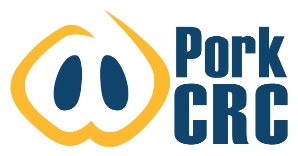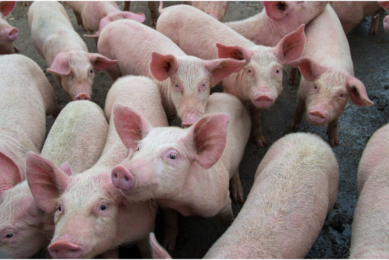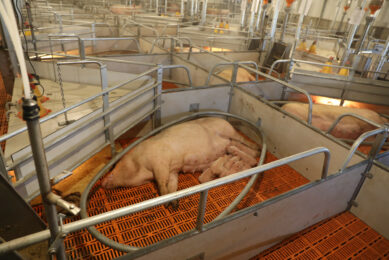Australia: ‘Free range’ sow and piglet system on agenda

Larger areas are expected to improve the well-being of the sow, reproduction rates and the welfare of offspring.
Australia’s Pork Cooperative Research Centre (CRC), based on the Roseworthy campus of the University of Adelaide in South Australia is funding research into confinement-free sow and piglet systems to improve the welfare of pigs.
Research is aimed at reducing the time sows and piglets are in stalls and eliminating the need for sow confinement during farrowing, lactation and gestation. Murdoch University will lead a subprogram aimed at developing gradual weaning systems where the separation of sow and piglet during lactation will be monitored and improved using weaning technologies.
Pork CRC CEO Dr Roger Campbell says innovative housing, breeding and suckling systems will be designed.
“The research on confinement free systems is all about enhancing animal welfare and well-being,” Dr Campbell says.
Pregnant sows will be studied in groups in relation to their social interactions, especially in larger living areas. Interactions between sows, aggression levels, injury, retention rates (culling) and reproductive performance are factors to be studied.
The mix of the sows in terms of age is also a factor. Sows in their second pregnancy have better welfare and performance outcomes when mixed with younger sows.
“By assessing sows in larger areas and their social interactions [fighting] we can ascertain their stress hormones [cortisol] levels and other stress immune indicators,” Dr Campbell says.
“Sows housed in a larger area could result in lowering stress hormones.”
Larger areas are expected to improve the well-being of the sow, reproduction rates and the welfare of offspring. Pork CRC’s subprograms with external partners include; gradual weaning systems, weaning technologies, housing systems and multi-suckling strategies aimed at reducing weaning stress.
“The move towards confinement free sow and piglet systems is driven by the community, retailers and consumers,” Dr Campbell says.
There is evidence of change within the industry due to customer demand. The Australian supermarket chain Coles have requested their suppliers remove all gestation crates and stalls by 2014.
“Change is occurring rapidly in the industry with sows living in outdoor [non-confined] systems growing from two per cent to 10 per cent in less than two years,” he says.
Pork CRC’s objective is for the industry to be completely rid of stalls by 2017.
About Prok CRC
A key challenge faced by the Australian pork industry is the need to maintain local production of high quality food for a reasonable price and return on production capital invested, without negatively impacting pig welfare, the environment or the health of the consumer. Through innovative, collaborative, whole value chain research, development and education programs within the CRC, the Australian pork industry will meet this challenge by facilitating production that:
A key challenge faced by the Australian pork industry is the need to maintain local production of high quality food for a reasonable price and return on production capital invested, without negatively impacting pig welfare, the environment or the health of the consumer. Through innovative, collaborative, whole value chain research, development and education programs within the CRC, the Australian pork industry will meet this challenge by facilitating production that:
- is efficient and ethical without the need for sow confinement in stalls or crates or widespread use of antibiotic medications
- delivers key nutrients, safely, enhancing the health and well-being of consumers
- utilises revolutionary feed sources and effluent management systems resulting in emissions of less than 1 kg of CO2 per kg of pork produced
- contributes significantly to Australia’s economic growth and food security without drawing on the ecological capital of other parts of the world.
Delivery of these outcomes will differentiate Australian pork as a high integrity meat that is welfare-optimal, premium quality, safe, nutritious and in high demand, which can be produced while conserving energy and water resources, minimising greenhouse gas emissions and maintaining efficiency and cost of production at a level that promotes investment, growth and sustainability of the industry.











